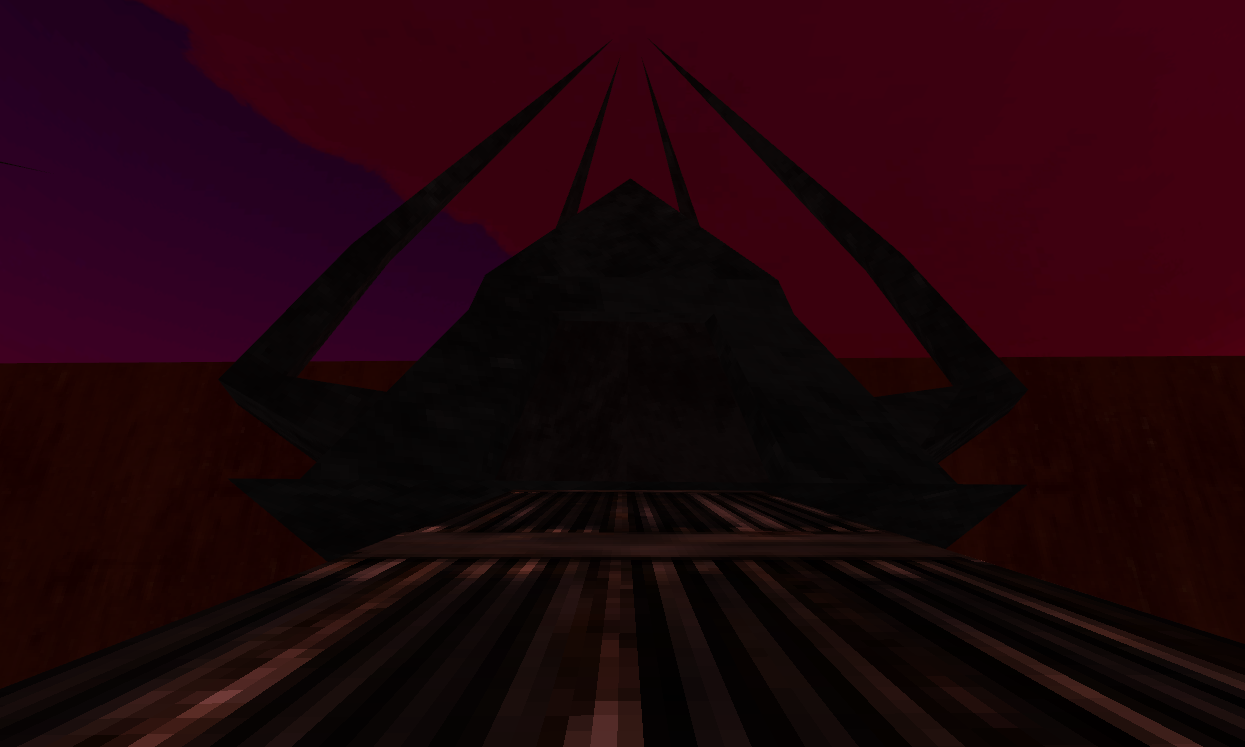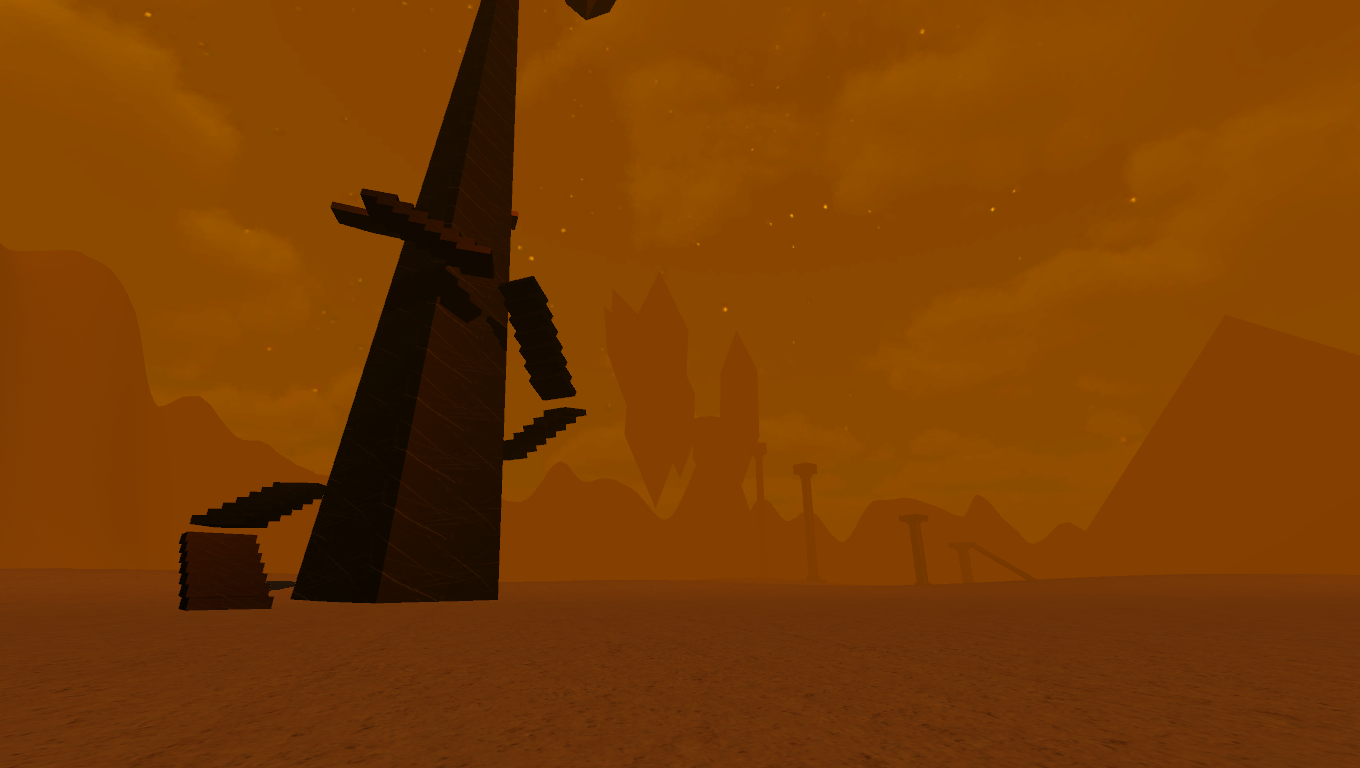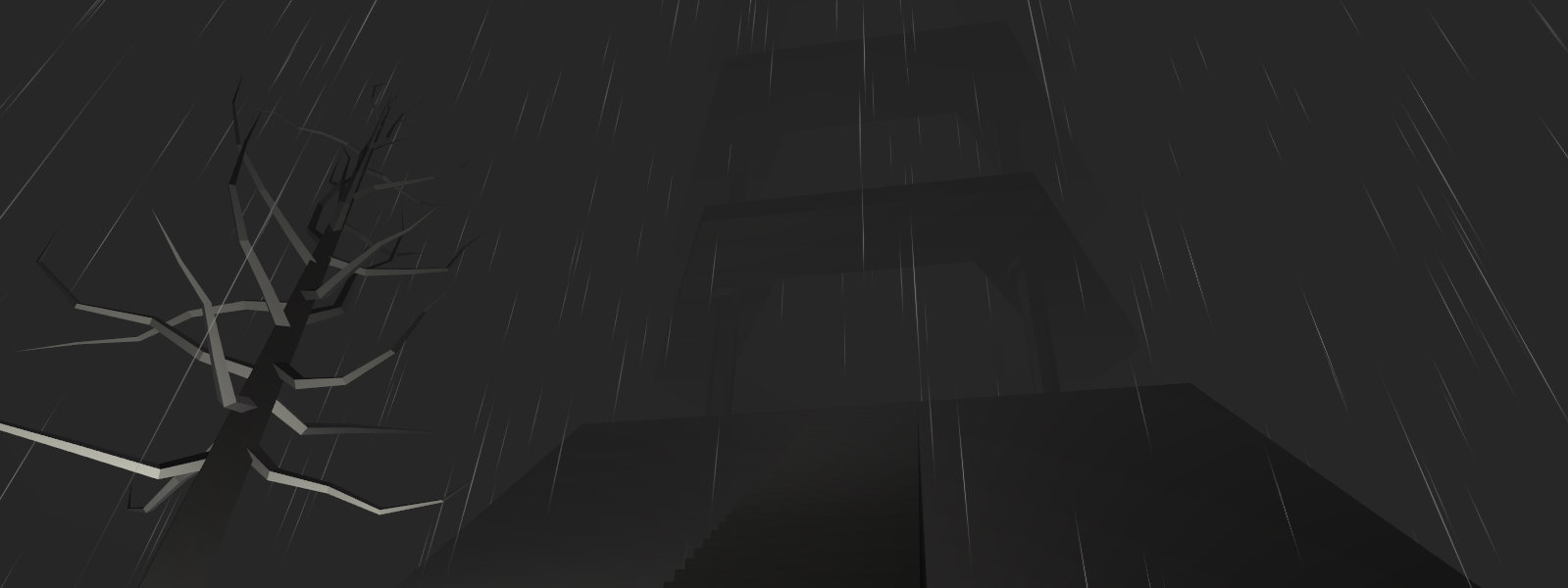On the many works of Kitty Horrorshow
This piece didn’t begin as what it eventually became. I had just finished Rain, House, Eternity and was attempting to outline my thoughts on paper, but the more I thought about it the more I realized that what I was writing was less a review of a particular game and more a discussion on its creator’s full body of work. For some time now Kitty Horrorshow has been freely releasing small, peculiar games to itch.io which taken on their own can seem largely inscrutable. The first game of her’s I played was Here Is Where I Carve My Heart, in which you traverse a floating pyramid to gather snippets of a poem. I couldn’t make heads or tails of it at the time and this first impression stuck with me, causing it to be some time before I would try one of Horrorshow’s games again.
After completing Rain though, everything began to make much more sense. It isn’t simply the fact that Rain is a larger, more complete experience that made it easier for me to understand and appreciate, but that I feel Kitty Horrorshow’s games can only properly be viewed in how they relate to one another.

It’s relatively uncommon for me that I am ever able to recognize a continuous creative voice and direction within the games of a particular developer. Sure, you can easily draw lines between the pieces of various games, their sequels, and contemporaries, but almost always the similarities are the result of repurposing a proven concept, rather than an attempt to refine and continue a creative vision. This isn’t surprising due to the number of people involved in making most games, and how more than any other medium they are cripplingly beholden to the whims of their audience, but it does make it harder to see games as complicated pieces of art rather than simply mass-produced ephemeral entertainment.
This is why I find the things independent developers such as Kitty Horrorshow are doing to be so exciting but also difficult to critique the same way I would most games. The way she builds her games is not simply untraditional, it requires a different way of thinking about how we view games and the people behind them.
To my knowledge none of Horrorshow’s games are directly connected to each other, but they are all inarguably hers. They’re unique onto themselves, but the way they’re structured, the tone, and the meaning within them feels persistent. There is always a structure (or several), in which something terrible has happened, and you have arrived alone too late to change anything. You see this in Here Is Where I Carve My Heart and Rain, House, Eternity, as will as in CHYRZA, Sunset Spirit Steel, Sigil Valley, Dust City, and even her Twine game Hornets.

What strikes me about all of these though is not how they feel similar to one another, but that they seem to present an idea that Horrorshow has been continually attempting to realize, which connects her games creatively in a way rarely seen in the medium. This larger picture in which each individual game is a piece connected to another then provides a context to better appreciate how they have improved over time; how they’ve changed or not changed and how flaws can potentially be seen as a part of a unique and particular style.
I should be clear that this doesn’t mean I believe Horrorshow’s games to be perfect, but that after playing so many of them the things I find problematic seem far more intentional than is originally apparent. The sparseness of the worlds she creates feels like less of an excessive misuse of terrain, but an intended distance that gives greater meaning to what little does exist. The scattered narratives overtime can begin to make sense as symbolism is repeated and clarified throughout different games, often centering around a feeling of helplessness within a world that wishes to control you. My first impression to this leaned toward inscrutable pretentiousness, but the persistence with which so many things reappear throughout Horrorshow’s body of work causes it to feel far more genuine and affecting.
While I don’t believe every game or developer would benefit from this style of game design and experimentation, it’s fascinating to me to see a developer who has created such a distinct creative language utilizing it in such a way as to intrinsically link her entire body of work (which is becoming impressively expansive). Where so often games can feel anonymous and attempt to differentiate themselves from what has been done before (often to minimal success), Horrorshow demonstrates how games can benefit from the sort of auteurship and extended conceptualization common in film, novels, and music but is surprisingly uncommon in gmaes. Where other games attempt to render each other obsolete and force you to move on to the newest release, Horrorshow’s work feels as if it depends on the continued existence of every piece and how they enrich each other. It's rare that I've ever seen games be retroactively improved by the release of new ones, yet I find myself appreciating Horrorshow's work more and more as her gallery of strange and intriguing worlds to explore continues to grow.
You can find Kitty Horrorshow's games on itch.io, as well as support her on her Patreon.

